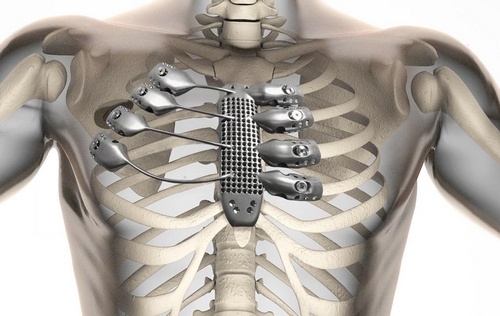Titanium alloy is a large synthetic metal, which is mostly used in aerospace materials. Can human skeleton be replaced by titanium alloy? In order to explore the feasibility of replacing all human bones with titanium alloys, we need to discuss the role of bones in the human body.

Skeleton has many functions, such as the most intuitive support and protection. Skeleton and other human body components can support the shape of the body, and form a space with ribs in the chest, which can protect human organs. Skeleton also has the function of movement. It works with other tissues such as skeletal muscle, tendon, ligament, joint and so on. Therefore, the difficulty of replacing skeletal muscle and tendon is that skeletal muscle and tendon do not have the ability to combine with titanium alloy, so it is not feasible to replace skeleton with titanium alloy.
Bone also has hematopoietic function, because bone, bone marrow and periosteum are three parts of the whole, and the hematopoietic function depends on the ability of bone marrow to produce blood cells. If titanium alloy is used instead, the bone is dead. Even if the bone marrow is fed with titanium alloy, new blood cells are produced in the bone marrow and cannot be discharged from the bone. So the possibility of replacing skeleton with titanium alloy material (even if skeletal muscle can be attached to titanium alloy) has been ruled out. In addition to hematopoietic function, there are also calcium and phosphorus problems. The main components of bone are organic proteins and inorganic substances. Most of the calcium and phosphorus in the body is stored in the bones. Calcium and phosphorus are also important minerals needed by the human body.
If titanium alloy is used instead of human bone, there should be no more fracture, but bone not only has the function of supporting and protecting human body, but also has other important functions, such as hematopoietic function. Without hematopoietic function, there will be no new blood cells to support blood circulation after old blood cells are aged and dead. Therefore, replacing bone with titanium alloy is an unrealistic idea.
